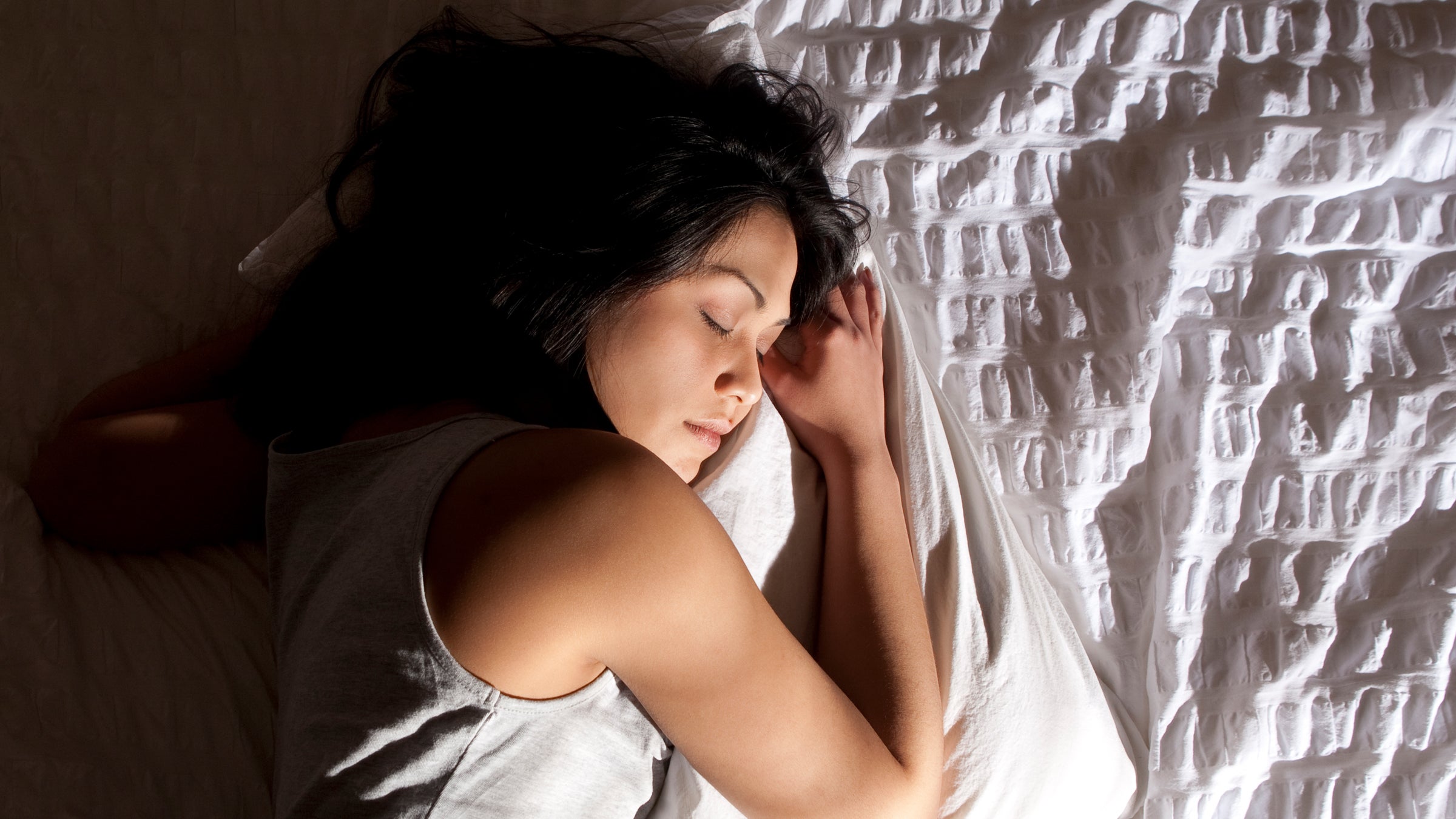6 Sleep Myths That Could be Keeping You Up

Not sleeping enough? Count yourself among the one in three adults not logging the sleep they need. Yet because sleep woes are so common, everybody’s become an expert in sleep, which means you could be following advice that might actually keep you up instead. Below, sleep experts put six myths to bed.
1. You can make up for lost sleep on weekends.
Why it’s not true: When you were in your teens and 20s, you may have been able to sleep until noon or beyond to make up for missed sleep. Yet between the ages of 25 to 30, your sleep capacity begins to decrease, which means that by your early 30s, you can’t sleep that long anymore, says Eve Van Cauter, Ph.D., chair of Sleep Number’s Scientific Advisory Board and professor of medicine at the University of Chicago in Illinois. Rather than counting on two weekend nights to take care of the sleep debt you’ve incurred throughout the week, log eight to nine hours of sleep several nights in a row.
2. You should go to bed early if you have a big day the next day.
Why it’s not true: It can be difficult to go to bed early if you’re not tired, which can lead to another issue. “You might have a prolonged period of wakefulness that could precipitate some anxiety,” says Daniel Rifkin, M.D., M.P.H., board-certified sleep specialist in Buffalo, N.Y., and CEO of Ognomy, the Sleep Apnea App. That’s because the harder you try to sleep, the more difficult it becomes. Instead, stick with your regular sleep schedule before a big day.
3. Lying in bed awake is as good as sleeping.
Why it’s not true: Lying awake in bed is never wise, especially if you have any trouble falling or staying asleep. “Spending too much wakeful time in bed is confusing to your subconscious nervous system, which controls your fight or flight mechanism, blood pressure and heart rate, among other systems,” Rifkin says. As a result, you may have even more trouble falling asleep. Instead, take some time before bed on your couch or recliner in a dimly lit room to read light material or flip through a magazine. When your eyes get heavy and you feel like sleep is imminent, head to bed. If, though, you wake up in the middle of the night and can’t fall back to sleep within five to 10 minutes, head back to that same couch and start reading what you were reading before bed. “That couch will soon become your stimulus for sleep-onset,” he adds.
4. Watching TV can help you fall asleep.
Why it’s not true: Watching TV before bed is no problem – as long as you do it outside the bedroom and turn the TV off at least 30 minutes before bed. “Light from the TV can simulate a sunrise, which can disrupt your normal sleep promoting factors,” Rifkin says. Take, for instance, melatonin, a hormone secreted by your pineal gland to let your body know it’s time to sleep. It’s called the “hormone of darkness” because exposure to light will suppress it, which doesn’t bode well if you’re watching TV either right before bed or as you fall asleep.
5. Your relationship will suffer if you don’t slumber with your partner.
Why it’s not true: Getting a sleep divorce has become a new trend, especially if sleep schedules are different or one partner is keeping the other up. But there’s no evidence to suggest that relationships suffer if you sleep apart. There is, however, evidence that poor quality sleep can lead to health woes. If one partner has an issue like loud snoring or uncontrollable movements, seek treatment, Van Cauter says. Then once the problem has been treated, you can decide if you want to return to sleeping together.
6. There’s no such thing as too much sleep.
Why it’s not true: While the sweet spot for sleep for most adults is seven to eight hours, “long sleep,” or sleep that lasts more than nine hours in bed, can be dangerous to your health. “Studies have shown that sleeping this much may promote weight gain and other chronic diseases, including cardiovascular and mood disorders,” Van Cauter says. Plus, long sleepers are more sedentary, which by itself is a risk factor for disease. If you’re one of these long sleepers, poor quality sleep may be to blame, and you should address potential causes like sleep apnea.
Related: